Discover the unique marriage traditions of Jordan, a country where religious laws heavily influence its legal system. Learn about the evolving landscape of marriage in Jordan and how it affects interfaith couples and LGBTQ+ individuals. Respect cultural traditions when attending a traditional Muslim wedding and appreciate the rich history behind them.
Jordan is a country rich in history and culture, with traditions deeply rooted in the Islamic faith. As such, the laws governing marriage in Jordan are heavily influenced by religious beliefs and practices. In this document, we will explore the progression of Jordan’s marriage laws and how they have evolved over time.
Religious Marriage
Jordanian law is deeply rooted in its Islamic faith, and this is evident in its marriage laws. As the official religion of Jordan, Islam plays a significant role in the country’s legal system. Under Jordanian law, only religious marriages are recognized as legal unions between two individuals.
In fact, civil marriages or marriages in other faiths are not permitted under Jordanian law. This means that individuals of different religions or those who do not wish to have a religious marriage ceremony are unable to legally marry in Jordan.
Marriage Certificate
For a marriage to be legally recognized in Jordan, it must be registered with the Sharia Court and a marriage certificate obtained. This document serves as proof of the union and is required for legal processes like obtaining a passport or registering children.
The marriage certificate contains vital details such as the spouses’ names, ages, and the date and location of the marriage. It is issued by the Sharia Court after approving all required documents.
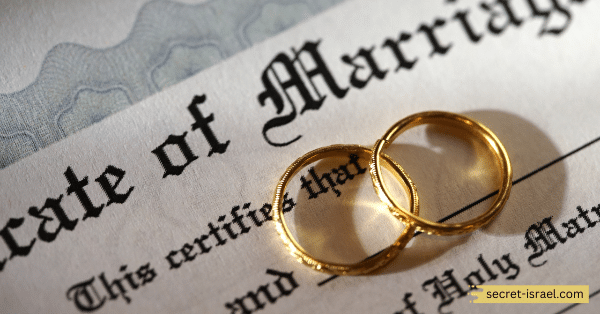
Church Marriages
While civil marriages are not permitted in Jordan, the country does recognize religious marriages performed by non-Muslims. However, these marriages must be officiated and registered with the respective religious authority, such as a Christian church or Jewish synagogue.
It’s important to note that while these marriages may be recognized as valid unions within the respective faith, they are not legally recognized under Jordanian law.
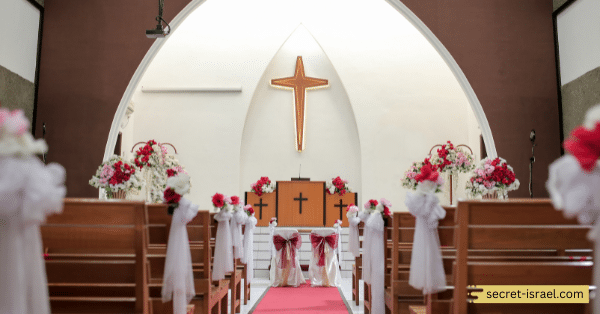
Muslim Marriages
Under Jordanian law, Muslim marriages must be performed by a sheik according to the laws of the Sharia Court. The ceremony is known as “Nikah” and involves reciting specific verses from the Quran in front of witnesses.
Interestingly, while Muslim men are permitted to marry women of other faiths, Muslim women are not allowed to marry non-Muslim men under Jordanian law. This restriction is based on the belief that children born to a Muslim father must be raised as Muslims, and therefore, their mother must also be of the Islamic faith.
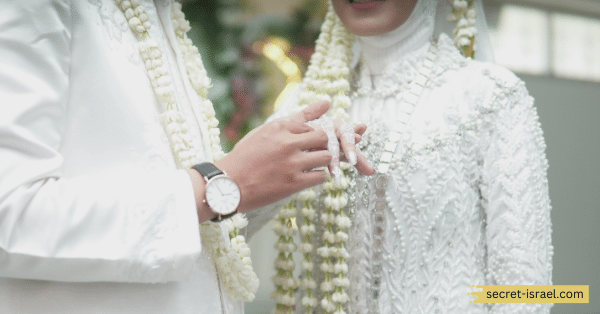
Marriage Traditions in Jordan
Henna Ceremony
One of the most well-known marriage traditions in Jordan is the Henna Ceremony. This pre-wedding ritual involves applying henna to the bride’s hands and feet, often accompanied by singing and dancing.
In addition to being a fun celebration, it also symbolizes fertility, good luck, and protection from evil spirits. It’s believed that the darker the henna stain, the stronger the love between the couple.
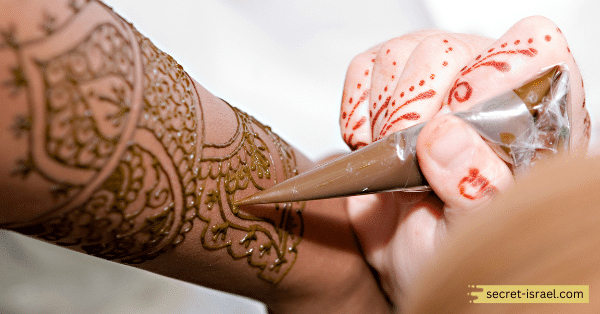
Actual Wedding Ceremony
The actual wedding ceremony in Jordan is a grand affair, often involving lavish decorations, music, and dancing. Traditional dress for the bride is a white embroidered dress called thoub, while the groom wears a formal suit or traditional clothing known as sherwals.
During the ceremony, it’s common for the groom to present his bride with gifts such as gold jewelry, which symbolizes his commitment and ability to provide for her.
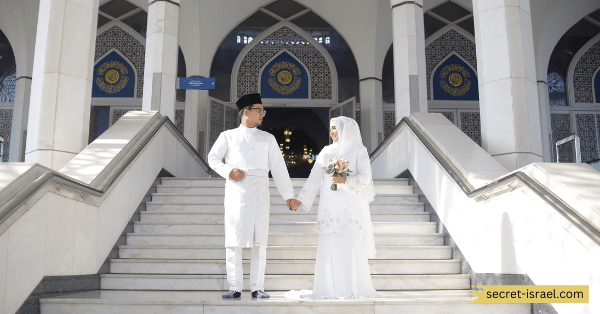
Wedding Reception
After the ceremony, a wedding reception is held where guests can enjoy a feast of traditional Jordanian cuisine. Popular dishes include mansaf, a rice and lamb dish served with yogurt sauce, and kabsa, a spiced rice and meat dish.
During the reception, it’s also customary for the bride to be carried in on a decorated chair while traditional music is played. The couple then shares their first dance together, followed by guests joining in on the celebrations.
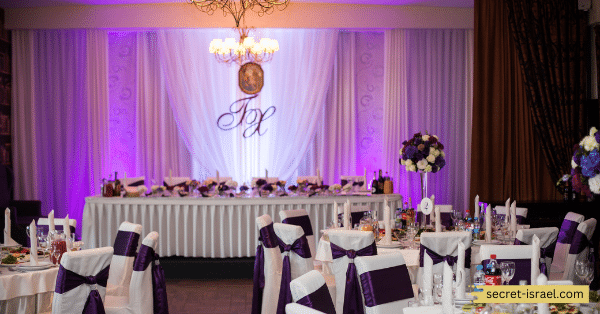
Same-sex Marriage
Jordanian law does not recognize same-sex marriage. In fact, homosexuality is illegal under the country’s penal code. While there have been efforts to decriminalize homosexuality in Jordan, it remains a taboo subject in society.
There are no laws prohibiting individuals from being LGBTQ+ or expressing their sexual orientation, but discrimination and social stigma still exist. As such, same-sex couples may face challenges and obstacles if they choose to openly express their love for one another in Jordan.
In recent years, there has been a growing movement advocating for LGBTQ+ rights in the country, but it is still a long way from legal recognition of same-sex marriage.
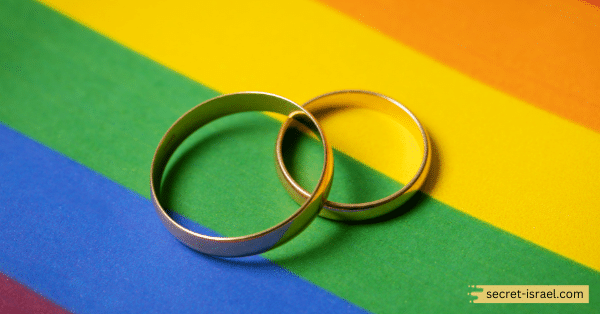
Polygamy in Jordan
Polygamy is also permitted under Jordanian law, but it is not a common practice in modern times. While some may argue that this goes against the notion of equality in marriage, others believe it serves as a way for men to fulfill their religious duty and provide for multiple wives.
In order for a man to take on another wife, he must have written consent from his current wife or wives and prove his ability to financially support them all equally.

The Changing Marriage Landscape
While religious marriage remains the only legal option for couples in Jordan, there have been some developments in recent years. In 2015, a new law was approved that allows judges to register marriages outside of religious courts, making it possible for interfaith couples to legally marry in Jordan.
This change is seen as a step towards more inclusive and modern marriage laws in the country. However, there are still many restrictions and limitations that remain in place, particularly concerning marriage between individuals of different religions.
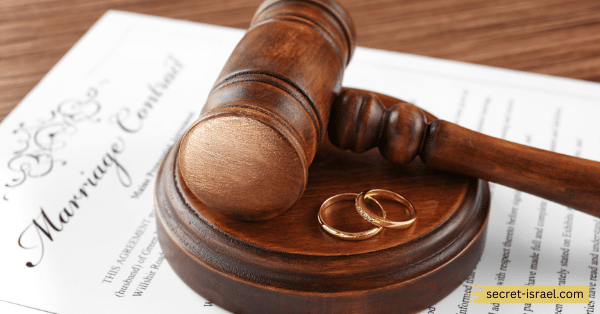
Conclusion
Marriage laws in Jordan may be heavily influenced by religious beliefs, but they continue to evolve and adapt to the changing times. While there are still challenges and limitations, it’s clear that Jordan is making strides toward creating a more inclusive and equal marriage landscape for its citizens. As visitors to this beautiful country, it’s important to be respectful of its cultural traditions and laws regarding marriage.
So whether you’re planning a traditional Muslim wedding or simply attending one as a guest, now you have a better understanding of the legal and cultural aspects surrounding marriage in Jordan. Enjoy the celebrations and appreciate the unique traditions that make Jordanian marriages so special.











